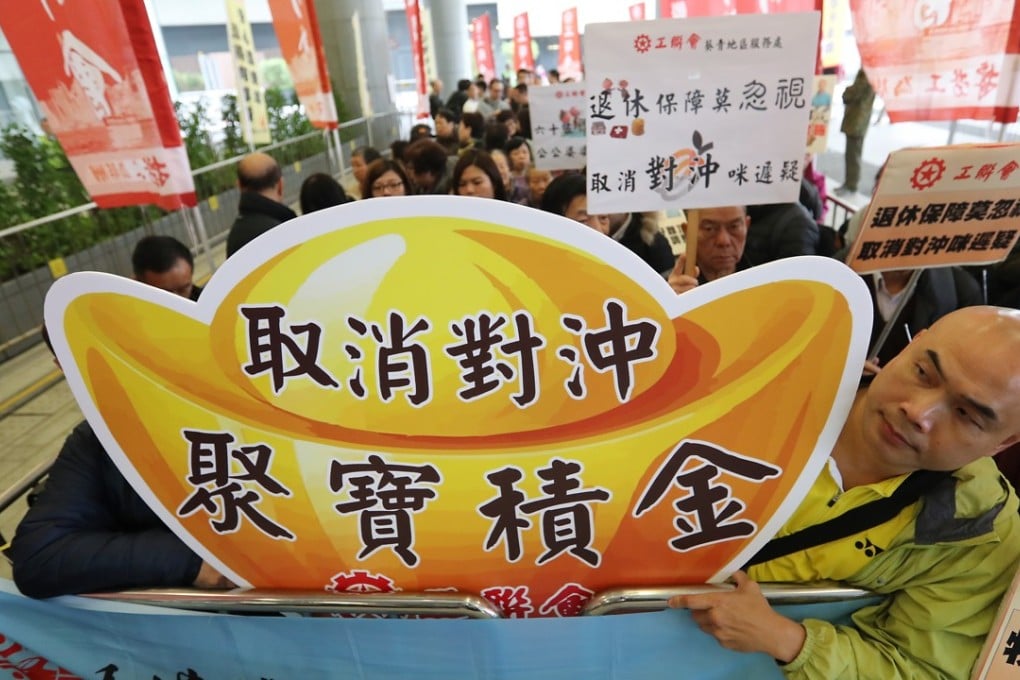Advertisement
‘Scrap MPF offset mechanism now or expect no change in Hong Kong status quo’
Sources tell Post new administration to face range of pressing issues when it takes office July 1
Reading Time:3 minutes
Why you can trust SCMP

Failure to scrap Hong Kong’s controversial pension fund offsetting mechanism before the current administration ends its term on June 30 wouldlikely see the present system staying in place for years to come, as the next leader would be too busy handling other pressing issues, sources said.
Ahead of an expected showdown of opposing views at Chief Executive Leung Chun-ying’s cabinet meeting on Tuesday, sources familiar with the matter also made clear officials would not adopt the business sector’s counterproposal, saying it was unfeasible.
“If the current administration doesn’t handle it, the next administration may not be able to tackle it immediately,” a source said, adding that Chief Executive-elect Carrie Lam Cheng Yuet-ngor would have many policy issues to confront from July 1.
Advertisement
“If the debate is to continue, this issue could be dragged on for two to three more years and we still won’t see a result ... the next administration may not be able to secure legislative approval until the middle of its [five-year] term.”
Advertisement
The controversy centres on the Mandatory Provident Fund offsetting mechanism. It allows employers to offset long service and severance payments with their contributions to their employees’ pension accounts.
Advertisement
Select Voice
Select Speed
1.00x